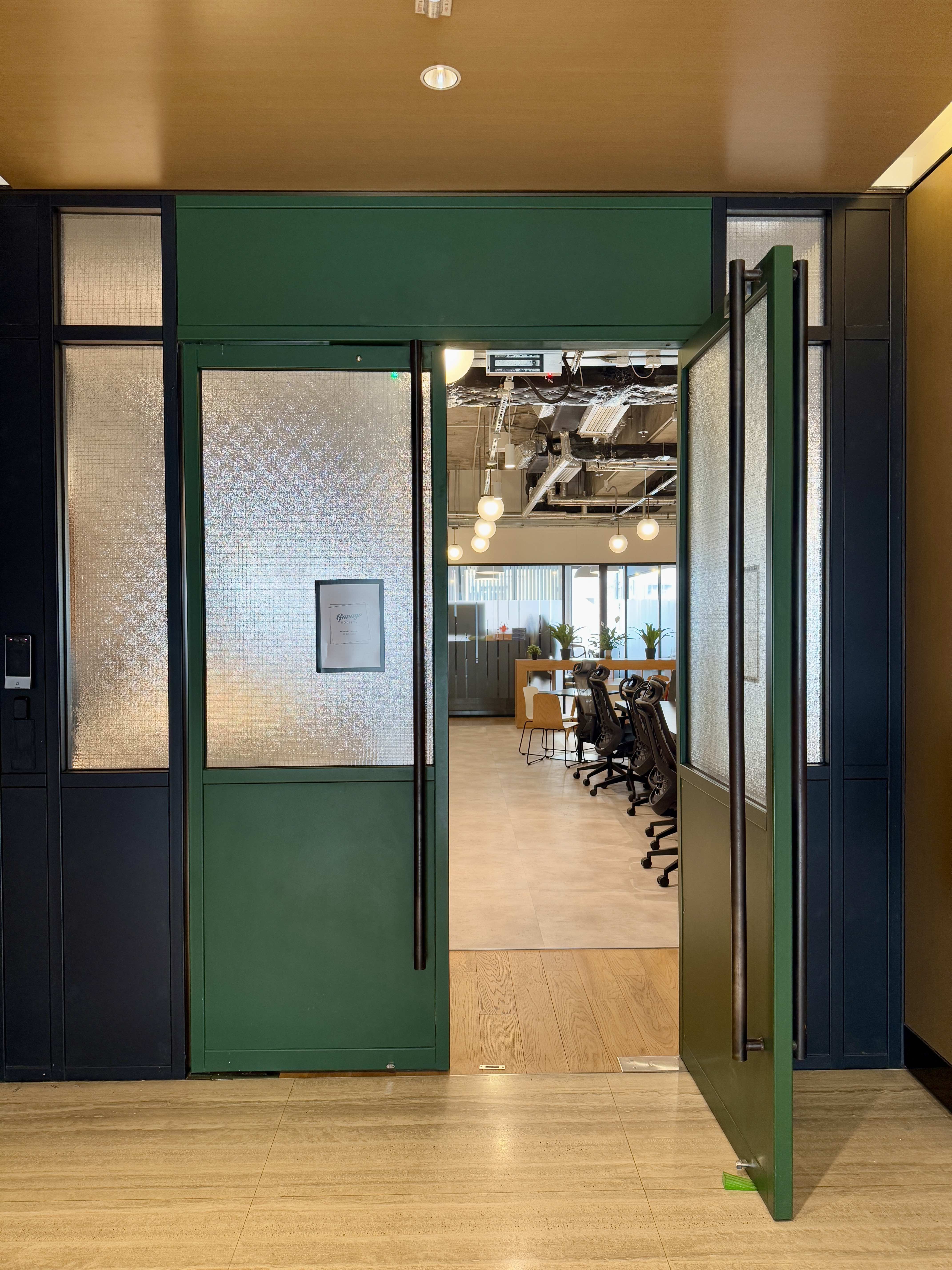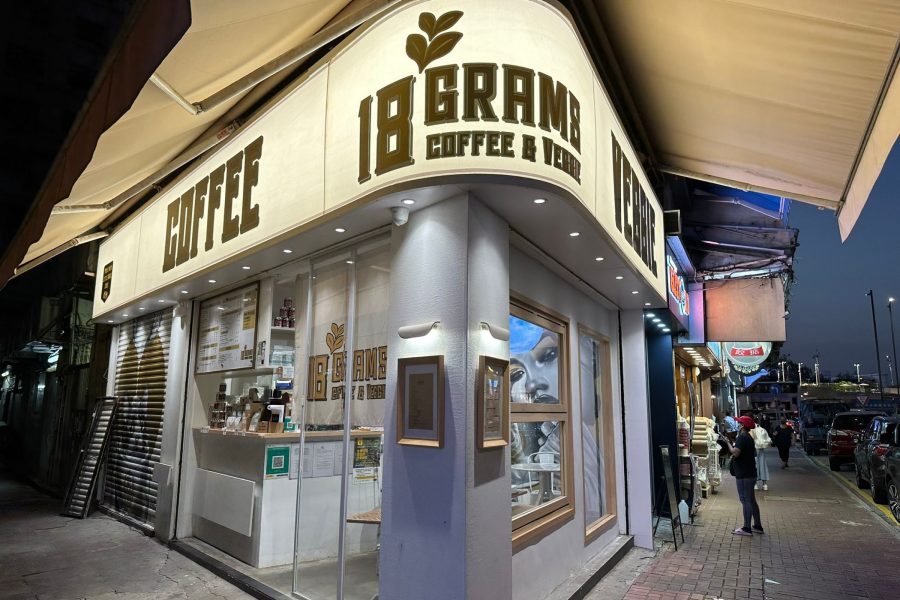LOCATIONS
Hong Kong
-
Facebook
-
LinkedIn
-
Instagram
-
Youtube
What do you eat when you’re the Co-Founder of Hong Kong’s first fresh produce and grocery delivery service? If you’re thinking some pretty amazing home-cooked meals, then you’re right.
We’re so thrilled to introduce <a href="http://jousun.com">Jou Sun</a> Co-Founder Jessica to the Garage Community at Sai Ying Pun. It was great getting to know her and discussing how she came to launch this innovative product in Hong Kong, her vision for the future of food consumption in the city, and what we as smart consumers can do to empower local farmers and reduce food waste.
We’ll also be diving into topics we as Hong Kong residents are very aware of, namely that of food safety, transparency, and access to affordable, fresh produce. Keep reading to the end as Jessica shares her favourite recipe of the moment too!
Jessica: I was born and raised in Hong Kong, and left for college. I studied Business and Economics at Brown University. After college, I worked at a consulting and asset management company for a few years. I took a safer career route. After a few years, I told my boss I had to go and try other things. I decided to apply to Columbia University's MBA programme. I joined Gucci after graduation, as I was always interested in retail, particularly fashion, and had a wish to work for a global luxury brand. After I came back to Hong Kong, I was surprised to find online retail in Hong Kong to be so underdeveloped. The high rent makes shopping in Hong Kong really expensive. I believed there was a way to make it more cost-efficient. I met Hinz, the Co-Founder of Jou Sun. He’s very interested in social innovation and was thinking about how to use eCommerce to help the city. That’s how we start a business together.
Jessica: Jou Sun uses a direct-from-source business model to deliver cheaper and fresher groceries to people with no inventory owned. When someone places an order, our vendor will receive the order while DHL is responsible for all our delivery logistics. We want to close the the gap between farmers and consumers, and deliver the freshest groceries to people everyday.
We’ve grown further away from the food sources, and you don’t know what you are eating most of the time. We’vre been exchanging safety with convenience, whenbut we can actually have both at the same time.
Our initial business model was to go directly to the wet market to purchase the groceries our customers ordered, and guarantee same day delivery. As our business grew, we realized it’s not price-efficient when you have to pay the retail price and the delivery service charges on top of that. Also, people started asking us where the ingredients are from. The only way we could find out was to ask the shops owners in the wet market, but their answers were usually not very satisfying. We didn’t feel comfortable with labeling the products as organic on our platform if we couldn’t be 100% sure. Now, we visit the source directly to verify its reliability. We knew it would be a challenge to change from working with wet markets to working with vendors directly, but luckily, we’ve gotten into the scale where we can contact importers, and farmers directly.
Jessica: We believe this is what’s needed. I thought of doing something related to fashion, but the disruption in that industry focuses on changing how the factories operate. I worked at a factory in China before, and the conditions were not good. The most important thing is to change the work environment, but it will take a really long time. I believe Jou Sun will be a better direction to take to make an impact.
Jessica: It was hard in the beginning. We attracted more people to join after establishing a small network through referrals from vendors. That’s how we met our investor as well. We don't try to get the highest number of vendors, but the finest quality on our platform. Customers will be confused when there are too many options anyway.
Jessica: One of our biggest and most recent milestones is when we moved our operations to DHL. If we did things the old way, we would eventually need to own vans and other assets. This delivery system is different from how other supermarkets work. Finding a reliable trade partner really helped us a lot. We had the technology, and operations was the last piece of the puzzle.
Jessica: Our goal is to have a strong presence in Hong Kong first. Most of our customers are English speakers. We’ve now launched our Chinese website as well. Eventually, we’ll start thinking about expanding overseas. We have to find a place where transparency is important, people are aware of food safety issue and are open to online shopping. It’s hard, but we never know what we’ll achieve.
Jessica: Locally grown organic vegetables are very popular on our platform, but the problem of organic vegetables is that they are seasonal. When corn is in season, the organic corn sales went crazy. When the corn is off-season, the sales of regular corn increased. You can observe that people prefer organic products. Our mission is to give people as many good options as we can, or the choice of being able to buy locally grown food. People who normally don’t have the time to go to the farmers market still want to eat local produce once in awhile. We hope we can help them by getting them groceries direct-from-sources. On the farmers’ side, they can focus on farming without thinking about marketing or transportation. Normally, they need to manage different areas from growing the produce to packaging to delivery, which they would have to spare a few days each month to do.
Jessica: As part of our mission, we are hoping to reduce food waste due to spoiling issues. When customers buy produce, they sometimes need to toss it after just two days. By shrinking the time from the farm to the customer’s home, they then have more time to prepare it. The rest of it is all about education - how to store your vegetables right so they last longer. 20% of the food waste happens before customers even purchase the produce. This means that supermarkets markup the price based on the predicted wastage. Any food wasted during the supply chain will end up in the increased retail price. Some of our products are 15% cheaper compared to supermarkets because we save money from space rental and waste.
Jessica: I’m more of a foodie. I’m not really great at cooking. Angie and Sharon are the chefs of the Jou Sun Team. I love eating while travelling and my husband is a really good at cooking. He likes cooking at home. We buy ingredients from Jou Sun, which is a chance for us to test out the products as well.
Jessica: I enjoy home cooking a lot and I really enjoy my husband’s cooking because he knows what I like. It’s safer when you know where the ingredients are from compared to dining out. I prefer to have simple meals. My husband and I travel a lot for food, and enjoy going to Michelin star restaurants. We sometimes try recreating the dishes we had. I am into oxtail stews these days, especially wagyu oxtail stew. Check out Jessica’s 6-minute healthy breakfast recipe here.
Jessica: I think you guys are doing a really great job. I’m so happy we can be work with companies in this collaborative working style. Most importantly - they love what they’re doing and believe in what they’re doing.
 Garage Blog
Introducing Garage Society's Newest Premium Workspace at Tower 535 Causeway Bay
Garage Blog
Introducing Garage Society's Newest Premium Workspace at Tower 535 Causeway Bay
We're thrilled to announce the opening of our newest Garage Society location in the heart of Hong Kong's most dynamic business district!
Garage Society Causeway Bay brings our signature blend of community, innovation, and premium workspace to Causeway Bay's prestigious commercial hub.
 Garage Blog
From Flat White to Flexspace - The Best Coffee Spots Near Garage Society Locations
Garage Blog
From Flat White to Flexspace - The Best Coffee Spots Near Garage Society Locations
Looking for the perfect cup of coffee to fuel your workday?
Members enjoy free coffee 24/7 in our spaces, but sometimes they need a change of scenery (or bean!). That's why we've compiled this guide to our members favourite independent coffee shops near each Garage Society location!
Whether you're a dedicated hot desk member or just exploring flexible workspace options, stay caffeinated and inspired with our picks below: